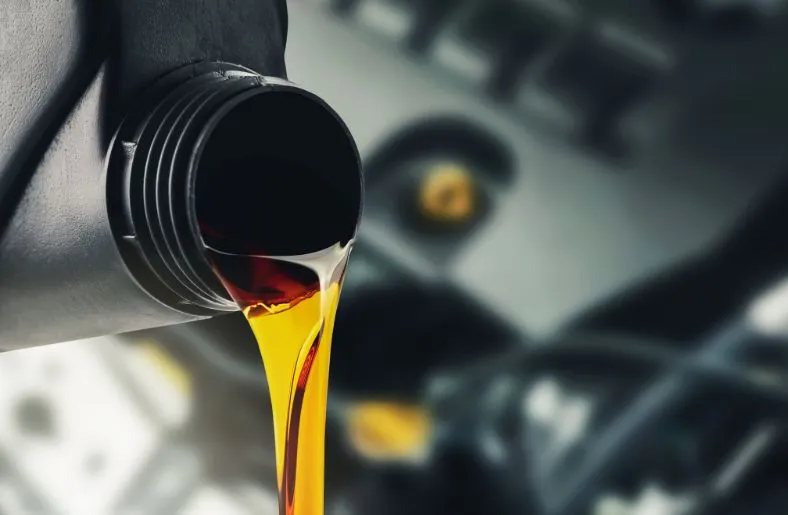The world of automotive care is rife with myths and misconceptions, often leaving car owners perplexed about the best ways to maintain their vehicles. One such topic that frequently sparks debates among enthusiasts and professionals alike is the concept of engine flushing. People wonder whether performing an engine flush could potentially harm their beloved vehicles.
In this comprehensive blog post, we will delve deep into the world of engine flushing, exploring what it is, how it works, and, most importantly, will engine flush damage engine or not.
Table of Contents
Engine Flush: What Is It?
Engine flushing is a process that involves using a chemical solution to clean the internal components of an engine. Over time, engines accumulate sludge, varnish, and other deposits that can impede performance and fuel efficiency. Engine flush products are designed to break down these deposits, allowing them to be drained out with the old oil during an oil change.
How Engine Flushing Works
Engine flush products usually contain detergents and additives that dissolve and suspend sludge and other deposits in the oil. When you pour an engine flush solution into the engine and run it for a short period, it circulates through the system, breaking down these deposits. After the engine flush, the oil and flush solution are drained, taking the dissolved contaminants with them.
Will Engine Flush Damage Engine: The Controversy
The controversy surrounding engine flushes stems from concerns about dislodging large chunks of deposits that could potentially block vital oil passages. Critics argue that these dislodged particles might cause more harm than good by clogging sensitive components.
However, it’s essential to note that when used according to the manufacturer’s instructions, reputable engine flush products are formulated to avoid this issue. They are designed to dissolve deposits gradually, ensuring that they are safely removed without causing any blockages. Additionally, modern engines are built with tolerance for some sludge and deposits, so the risk of dislodging harmful chunks is minimal when using high-quality engine flush products.
When Should You Consider an Engine Flush?
Engine flushing is not a routine maintenance task. It should be considered in specific situations, such as:
- Neglected Maintenance: If your vehicle has gone significantly beyond its recommended oil change interval, there’s a higher chance of sludge buildup, making an engine flush beneficial.
- Purchased a Used Vehicle: If you’ve recently acquired a used vehicle and are unsure about its maintenance history, an engine flush can be a good preventative measure to ensure optimal engine performance.
- Switching to a Higher-Quality Oil: If you are upgrading to a higher-quality motor oil, using an engine flush before the oil change can help remove residual deposits from the previous oil.
Related Guide: Unlocking the Potential: Engine Oil Treatment Benefits (2023-2024)
FAQs
1. Are engine flushes safe?
Regular engine flushes bring multiple benefits to the table. They enhance the overall engine performance and extend its service life. This practice also allows you to reduce engine wear and tear, increase fuel efficiency, and reduce the risks of expensive repairs.
2. What are the disadvantages of engine oil flush?
The only disadvantage of an engine flush depends on which system you’re flushing. If flushing out the engine oil system if the engine has sludge or carbon buildup it can seize the oil pump.
3. Is engine flush a waste of money?
If you’ve had your oil services on schedule and used the correct oil, you shouldn’t have a sludge buildup and you will only be wasting your money to have it done. If you haven’t changed oil often enough or used regular oil on a turbo-charged engine you may have some accumulated.
4. Will the engine flush clean piston rings?
An engine flush circulates oil through the engine to get rid of gunk and buildup. This can get some of the gunk off the piston rings to keep them loose and might improve performance temporarily, but it’s not a long-term fix.
Conclusion
WiIl engine flush damage engine or not? Knowledge is your most potent tool in the realm of automotive care. Engine flushing, when done correctly with the right products, is a valuable process that can enhance your engine’s longevity and performance. It’s vital to follow the manufacturer’s recommendations, use high-quality products, and consider your specific circumstances before deciding whether an engine flush is necessary for your vehicle.
Remember, a well-maintained engine is a happy engine, and with the right information, you can make informed decisions about your car’s care, ensuring it serves you faithfully for years to come.

